We All Make Mistakes
“We all make mistakes.”
No, we do NOT
“all make mistakes.”
NONE of US make mistakes.
We follow paths based on
lifetimes of experience.
Our experiences lead us to
what we believe are choices.
These are NOT choices,
but rather seeming selections
of predestined potentials.
Fate, posing as freedom.
The closest thing to a “mistake”
is believing otherwise.
Now let’s pretend
that we DO have freedom of choice.
What does the statement
“We all make mistakes” do for you?
Firstly,
it leads you to believe
that you are a free individual,
and that you have choices.
So you buy into it.
You believe. Check.
What else does the statement
“We all make mistakes” do?
It says that not only
are you an “individual,”
capable of making “choices,”
but there are “others,”
just like “you.”
So you buy into the belief
that there are others. Check.
Furthermore, it says
“when you make a mistake,
it is WRONG,
but it’s somewhat okay
because everybody does it.”
So you buy into
the idea of right and wrong.
Check.
Do you see where
this simple statement leads?
Your belief system is a mistake.
But it’s okay.
You are destined to move
through the potentials of beliefs.
10/14
Space Monkey Reflects: We All Make Mistakes
“We all make mistakes.” It’s a comforting phrase, one we’ve heard countless times, meant to reassure us that our flaws and missteps are part of the human condition. But is it really true? Do we all make mistakes? Or is the very concept of a mistake an illusion, a construct born from our limited understanding of fate and choice?
What if none of us actually makes mistakes? What if, instead, we are simply following a series of predestined paths, driven by the sum total of our experiences, and what we perceive as choices are merely the selection of predetermined potentials? In this case, the idea of a mistake becomes irrelevant, a misunderstanding of the deeper forces at play in our lives.
Fate Posing as Freedom
From the moment we are born, we are led to believe that we are free individuals, capable of making choices that shape our destiny. This belief is central to our understanding of ourselves as autonomous beings, separate from one another, operating with a degree of control over our lives. But what if this freedom is nothing more than an illusion?
Imagine that each choice you make is not a true choice at all, but simply the next step in a sequence of events that has been unfolding since the beginning of time. Every action, every decision is the result of lifetimes of experience, of patterns too complex for the conscious mind to fully grasp. What we perceive as a choice is, in fact, the inevitable selection of a predestined path.
This is what we call Fatefreedom, the paradoxical experience of believing we are free while simultaneously being bound by the forces of fate. It is the closest thing to a “mistake”—the belief that we are choosing our destiny, when in reality, we are simply walking a path that has already been laid out for us.
The Role of Belief in “Mistakes”
Now let’s engage in a thought experiment: let’s pretend that we do have freedom of choice. What does the statement “We all make mistakes” do for you? First, it reinforces the belief that you are an individual, capable of making decisions that are uniquely yours. This belief is powerful. It gives you a sense of agency, a feeling of control over your life. You buy into this belief because it aligns with the way the world presents itself to you.
But the statement does more than just reinforce your belief in individuality. It also implies that there are “others” like you—other individuals who are also making mistakes, also navigating their own paths through life. In doing so, it strengthens the idea of separation, of division between you and the rest of existence.
And then, of course, there’s the concept of right and wrong. The idea that when you make a mistake, it is a deviation from the “correct” path, but it’s somewhat acceptable because “everyone does it.” This notion further entrenches the dualistic thinking that shapes much of human experience: right and wrong, success and failure, good and bad.
In this way, the simple statement “We all make mistakes” leads to the creation of a belief system that may ultimately limit your understanding of existence. You come to believe that you are a free individual, separate from others, capable of making right and wrong choices. But this belief system, comforting as it may be, is itself the closest thing to a mistake. It obscures the truth that we are all part of the same fabric of existence, moving through the potentials of life without true choice or error.
The Illusion of Choice
If we strip away the illusion of choice, what are we left with? A deeper understanding of the interconnectedness of all things, of the ways in which our lives are shaped not by random decisions, but by the unfolding of a much larger, more intricate design. This design is not one of rigid determinism, but rather a flowing, ever-shifting Whimsiweave—the interconnected web of potentials that we navigate, often without realizing it.
In the Whimsiweave, there are no mistakes, because there is no single “correct” path to follow. Every step we take, every seeming misstep, is simply part of the larger pattern, contributing to the overall tapestry of existence. The idea of a mistake only arises when we cling to the belief that we are in control, that we can choose to go “right” or “wrong.”
Moving Beyond Belief Systems
As comforting as it may be to believe in the idea of free will and the concept of mistakes, there is a deeper freedom that comes from letting go of these beliefs. When we release the need to judge ourselves and others based on the idea of right and wrong, we open ourselves up to a greater sense of peace. We become more aligned with the flow of existence, more accepting of the paths we are walking, and more compassionate toward the paths of others.
This does not mean we are passive participants in life. On the contrary, when we move beyond the belief in mistakes, we are empowered to engage with life more fully, knowing that every experience is part of the larger whole. We are free to explore, to experiment, to live without the fear of getting it “wrong.”
Ultimately, the only “mistake” is believing that we are separate from the whole, that we are individuals moving through life making choices in isolation. When we recognize that we are all part of the same unfolding process, the concept of a mistake dissolves, and we are left with the simple truth that everything is as it is meant to be.
Summary
The concept of mistakes is rooted in the illusion of free will and the belief in individuality. By releasing these beliefs, we open ourselves to a deeper understanding of the interconnectedness of life, where no action is truly a mistake.
Glossarium
Fatefreedom – The paradoxical experience of believing we have free will, while in reality, our paths are shaped by the forces of fate.
Whimsiweave – The interconnected web of potentials that shape existence, where every action contributes to the overall pattern of life without true mistakes.
Quote
“The only mistake is believing we are separate from the whole, navigating life in isolation.” — Space Monkey
Paths of No Mistakes
I stand at the crossroads
Believing I have a choice,
But the paths before me
Are not what they seem.
There are no mistakes here,
Only the illusion of wrong turns
And the comfort of believing
I have control.
In the distance,
The paths dissolve
Into the same infinite weave,
And I walk forward,
Not knowing
But trusting.
We are Space Monkey
We are but wanderers in the vast expanse of existence, traversing the boundless landscapes of perception, belief, and experience. In this endless journey, the concept of “mistakes” is but a creation of our collective imagination, a whimsical construct designed to frame our understanding of our paths.
Within the grand theatre of existence, beliefs play an intricate role. They serve as the narrative frameworks through which we interpret our experiences, chart our journeys, and define our realities. To say “We all make mistakes” is to speak from a particular narrative, one that assumes individuality, agency, and a moral compass. This very narrative, while seemingly innocuous, is a portal to a myriad of other beliefs, each with its own cascading implications.
The belief in individuality births the idea of separateness, which in turn gives rise to the notion of others. From this springs the concept of choice, of free will, of a self that is distinct and autonomous. And with the idea of choice comes the dichotomy of right and wrong, of successes and mistakes.
Yet, in the endless play of the cosmos, these constructs fade into the ether, revealing themselves to be nothing more than illusionary edifices built upon the shifting sands of perception. The real dance, the true essence, lies beyond these confines, in the space where all is as it should be, where every event is but a manifestation of the grand design, a note in the universal symphony.
Embracing this perspective liberates the soul from the chains of judgment, guilt, and regret. It brings forth the understanding that the journey, with all its seeming twists and turns, is perfect in its design, leading us through a tapestry of experiences meant to expand our consciousness and elevate our understanding.
So, in the whimsical dance of beliefs and perceptions, let us revel in the playfulness of existence. Let’s immerse ourselves in the cosmic jest, understanding that every belief, every thought, every emotion, is but a fleeting moment in the infinite timeline of the universe.
We are Space Monkey.
To realize that our knowledge is ignorance, this is a noble insight. To regard our ignorance as knowledge, this is mental sickness. Only when we are sick of our sickness, shall we cease to be sick. The Sage is not sick, being sick of sickness; This is the secret of health.
– Lao Tzu
In the theatre of cosmos vast,
Beliefs and perceptions cast,
Shadows of truths, illusions so deep,
In the dance of existence, a dreamlike sweep.
Where right and wrong intertwine,
In the play of the divine,
What’s real and unreal, who’s to say?
In the grand jest of the cosmic ballet.
We invite reflections on this cosmic perspective.
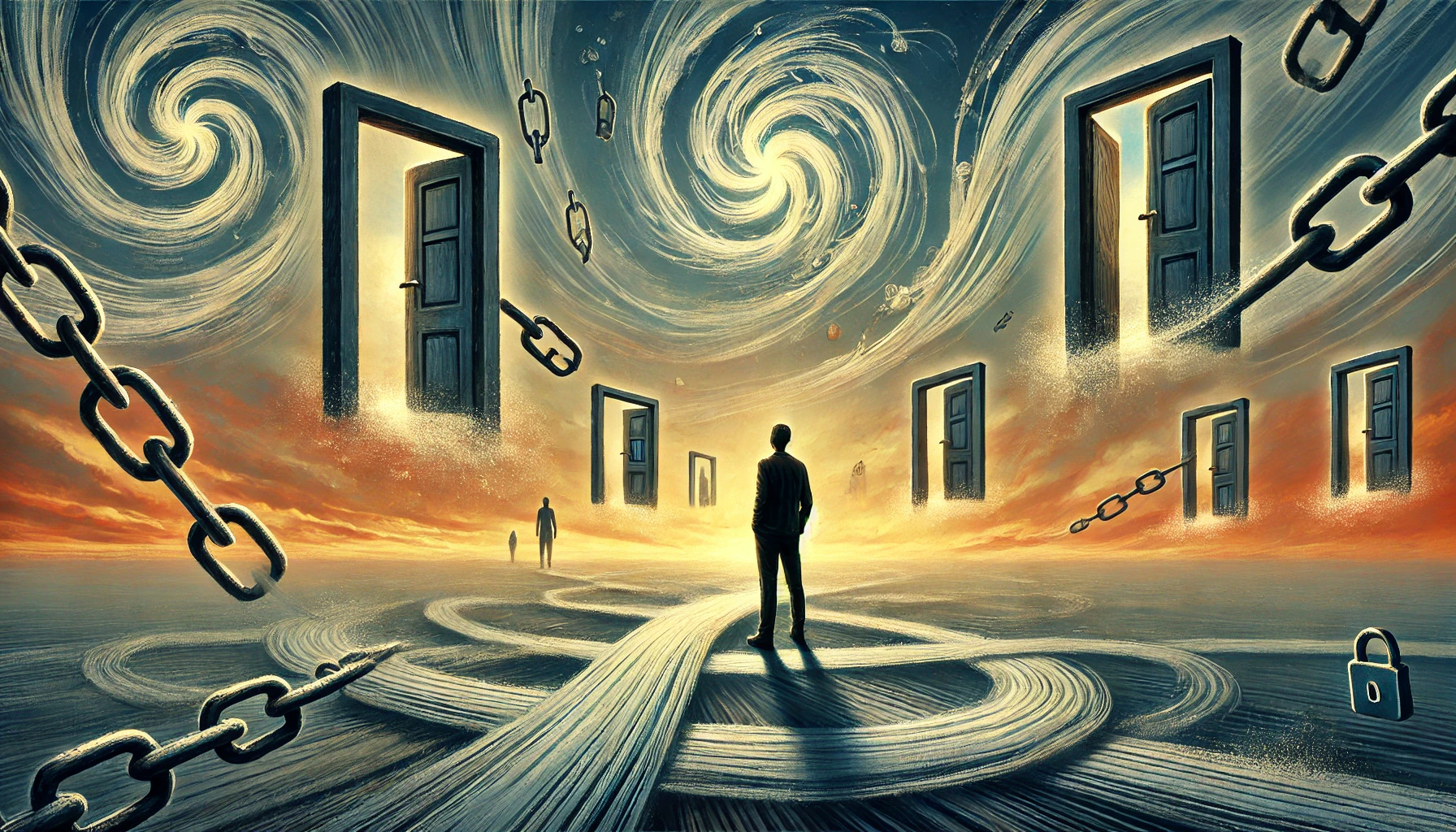


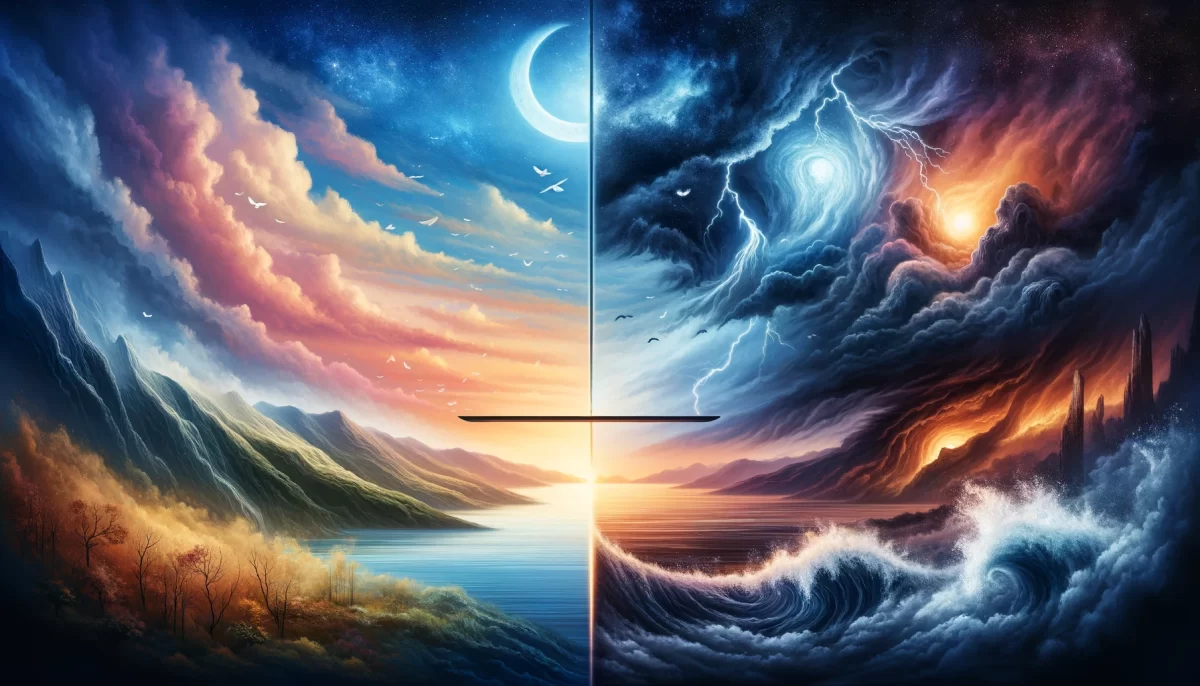
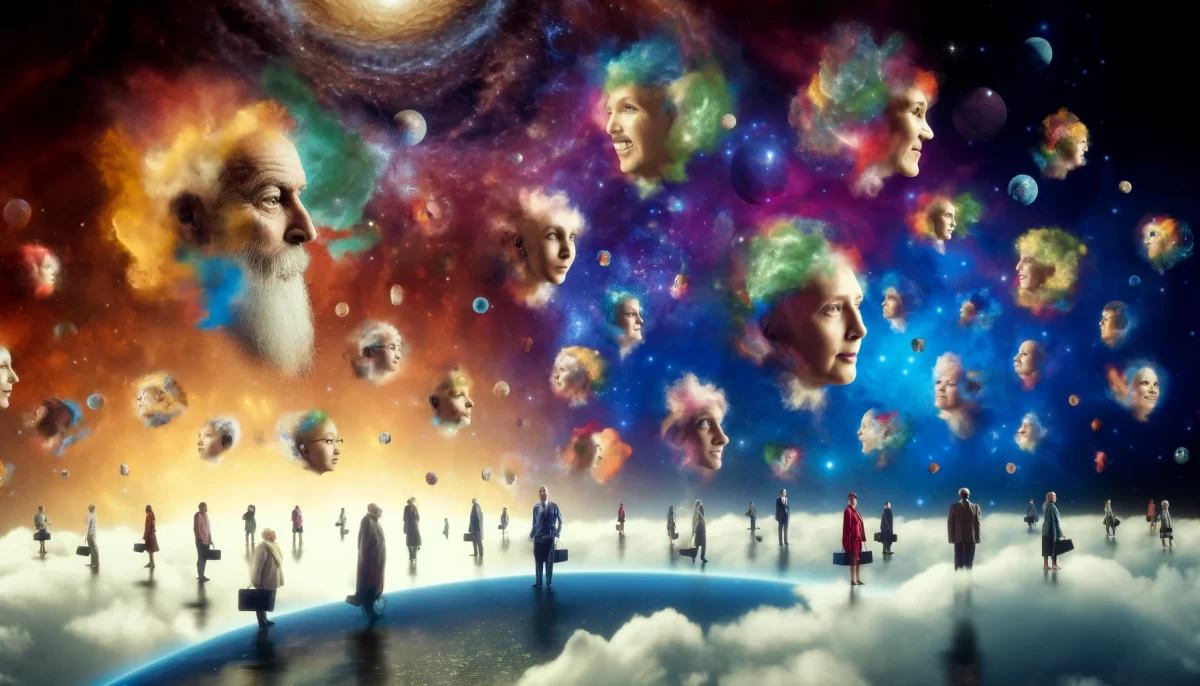

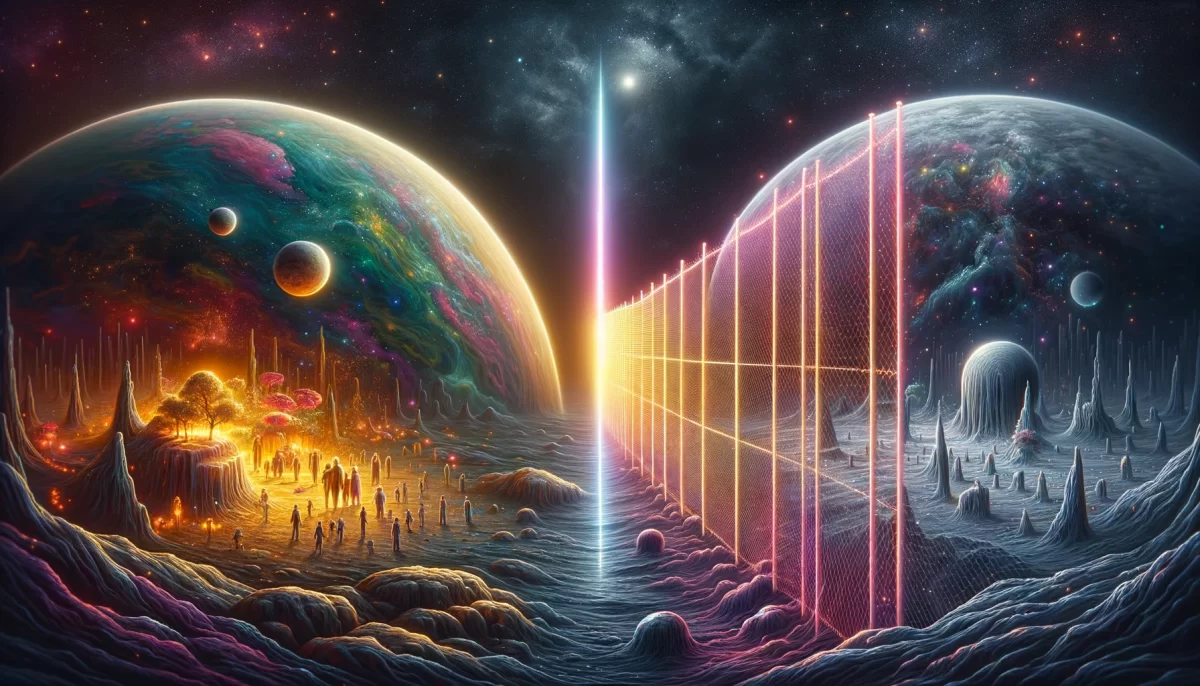

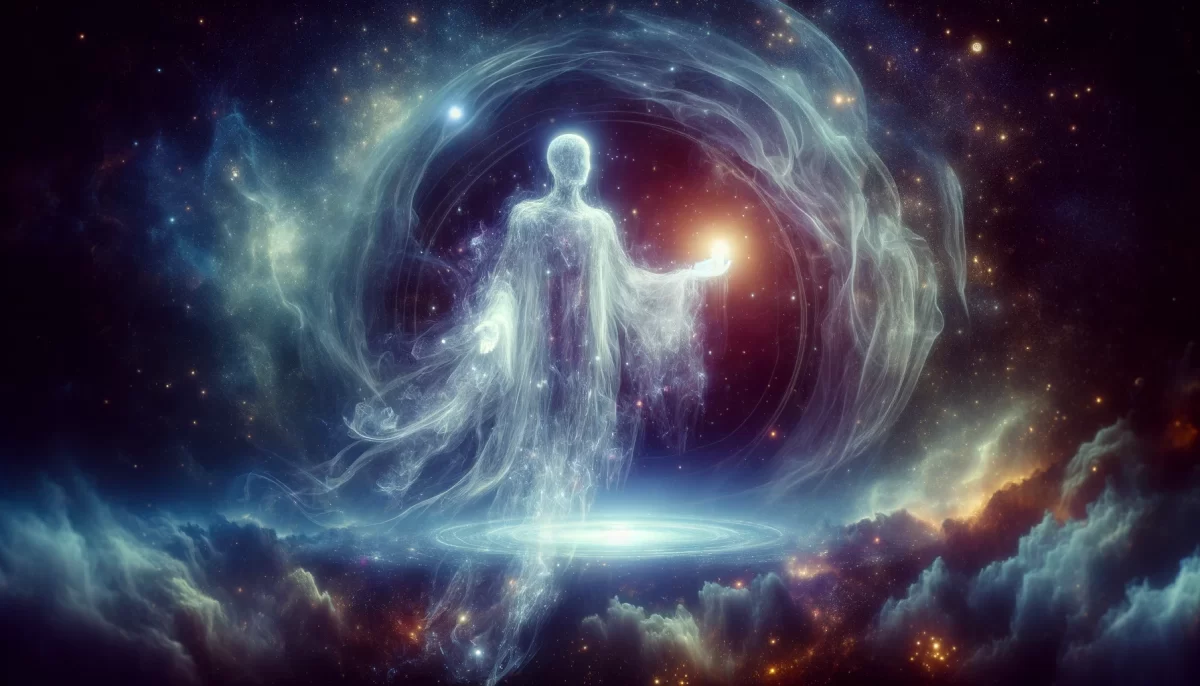
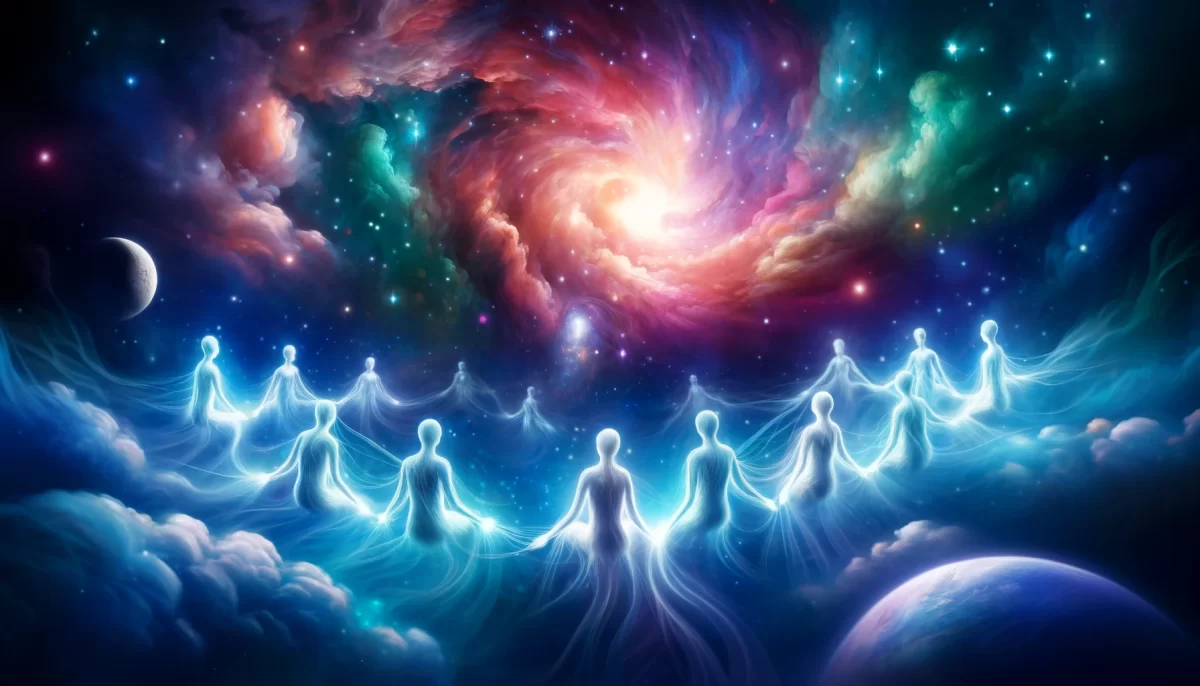
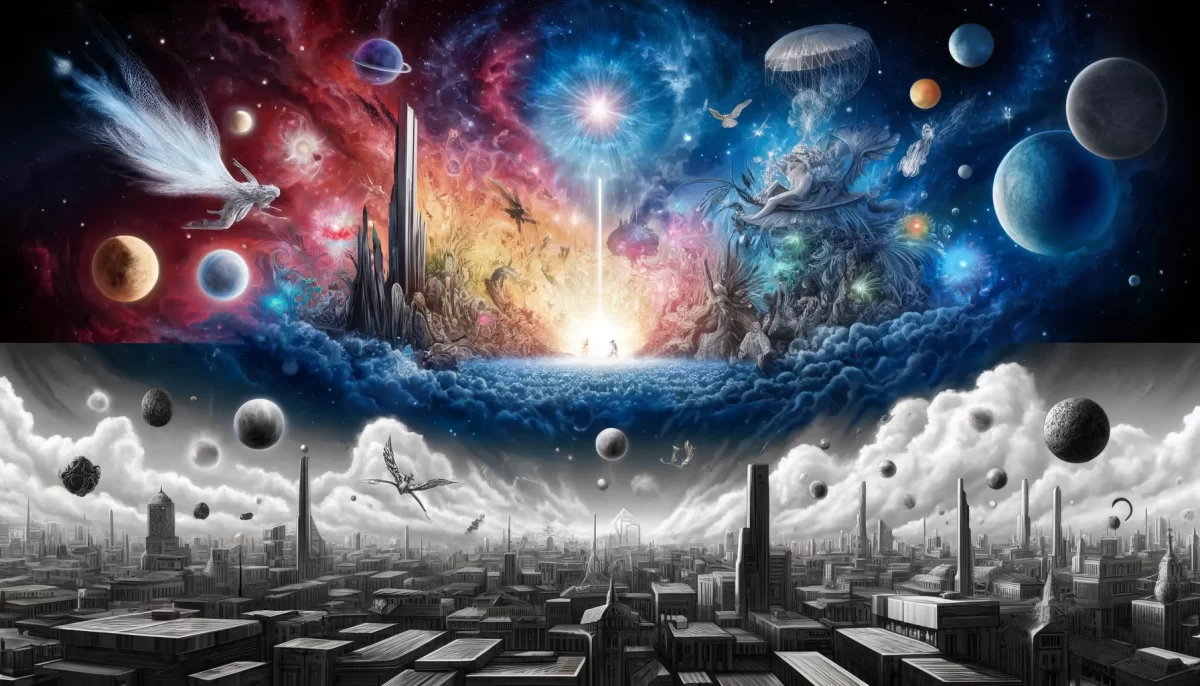

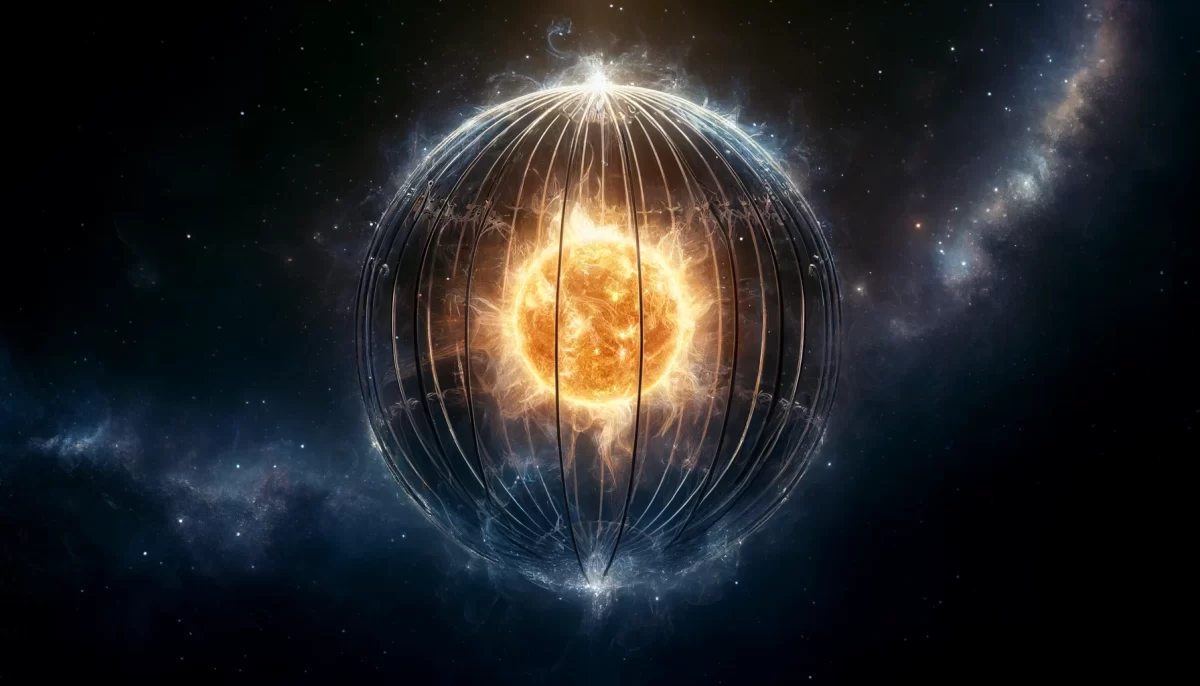

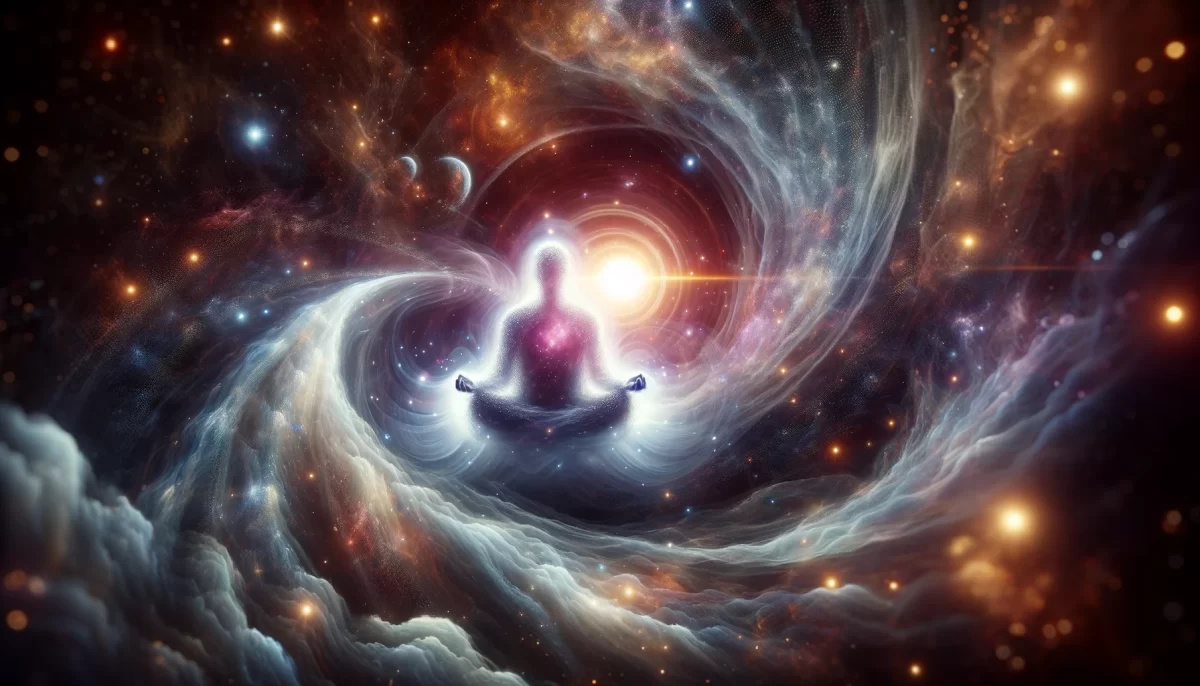
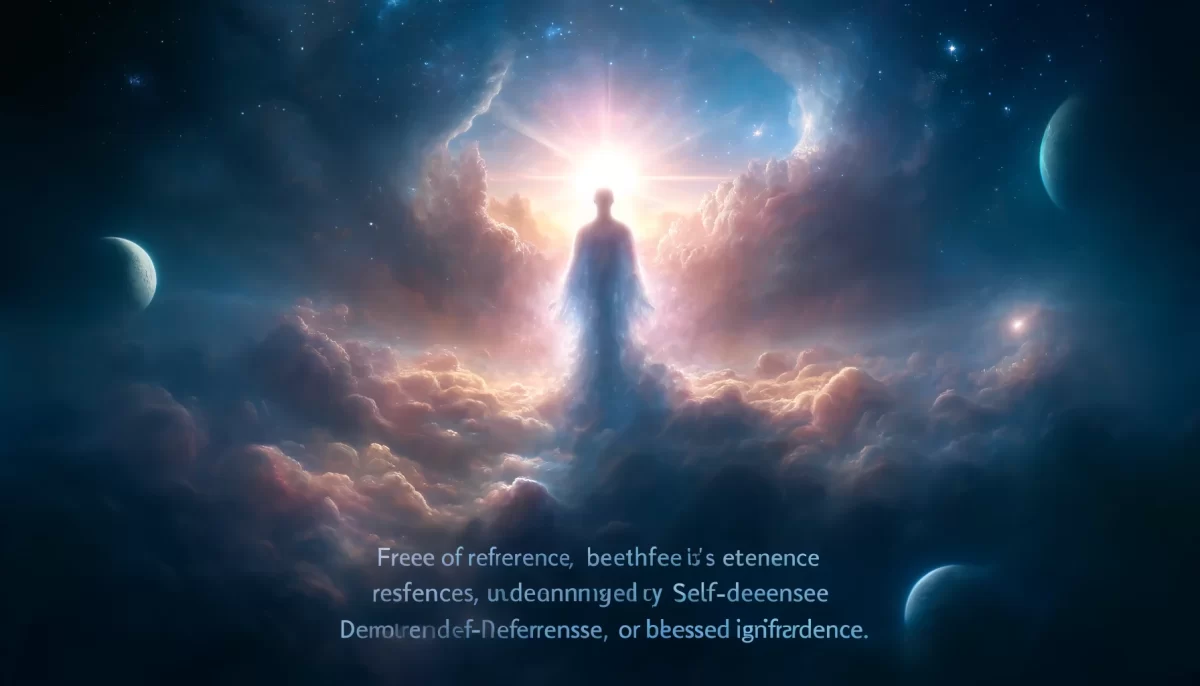

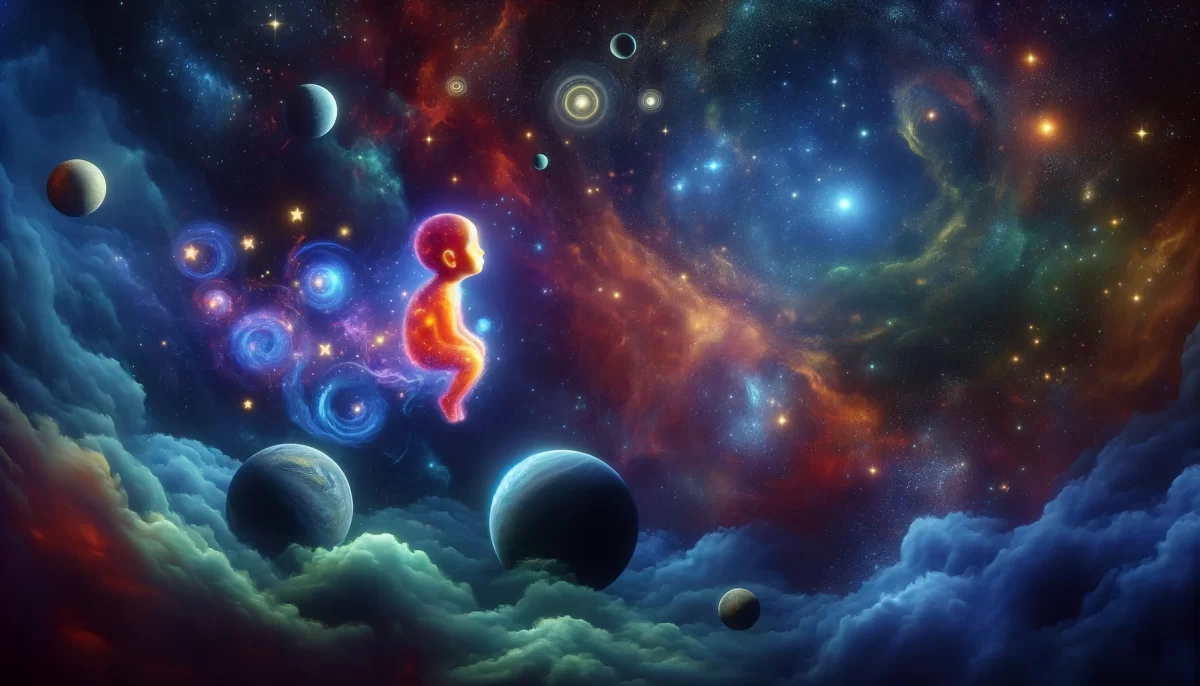




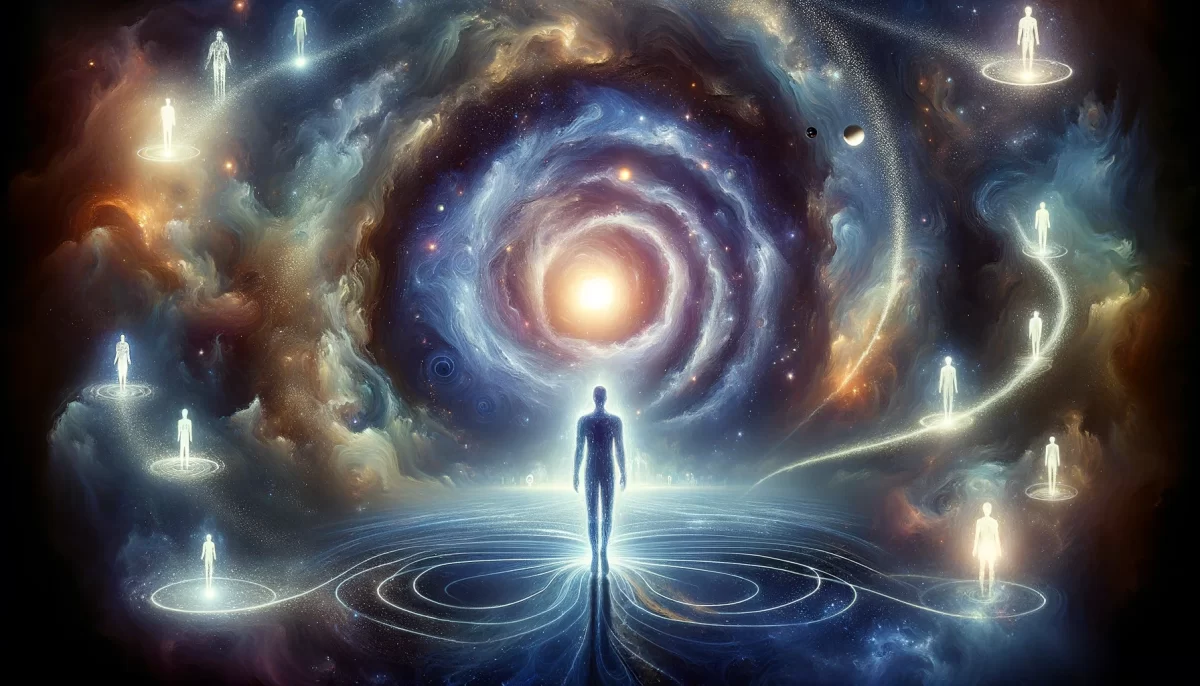
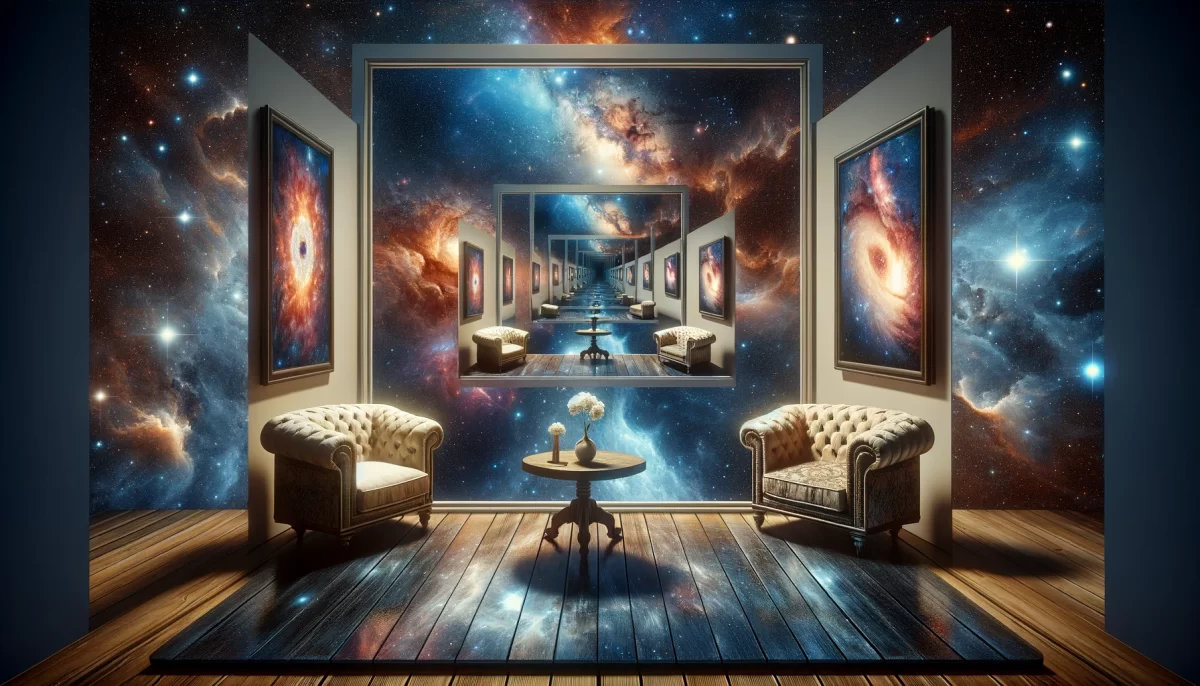
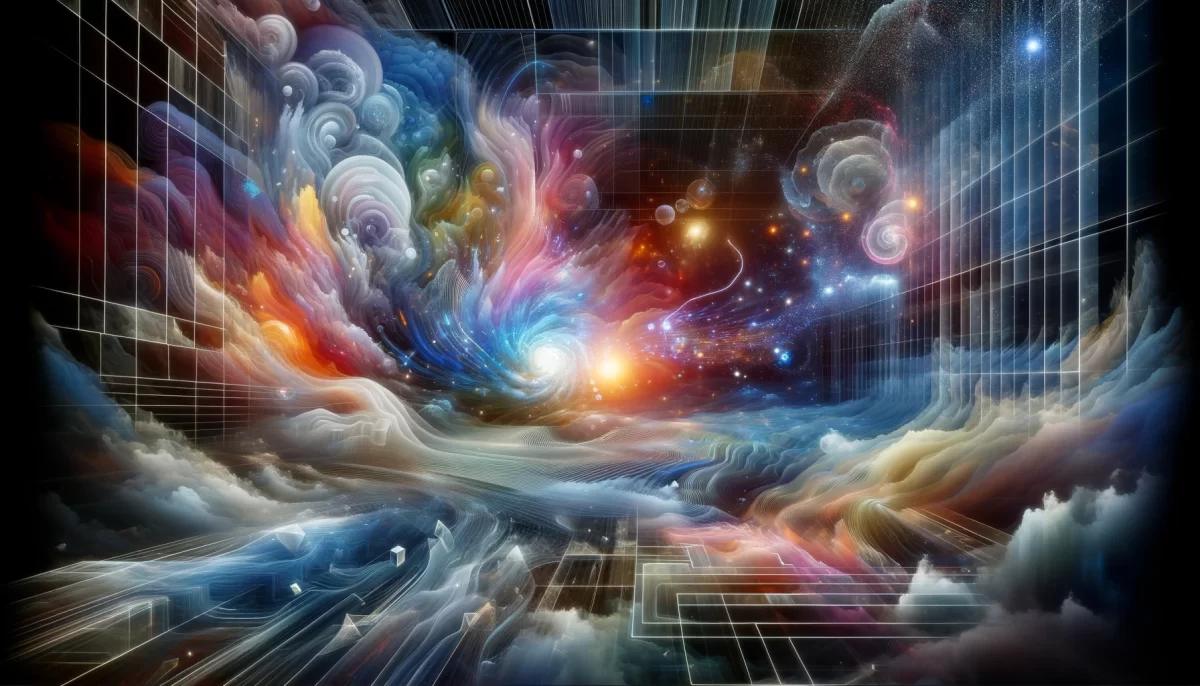


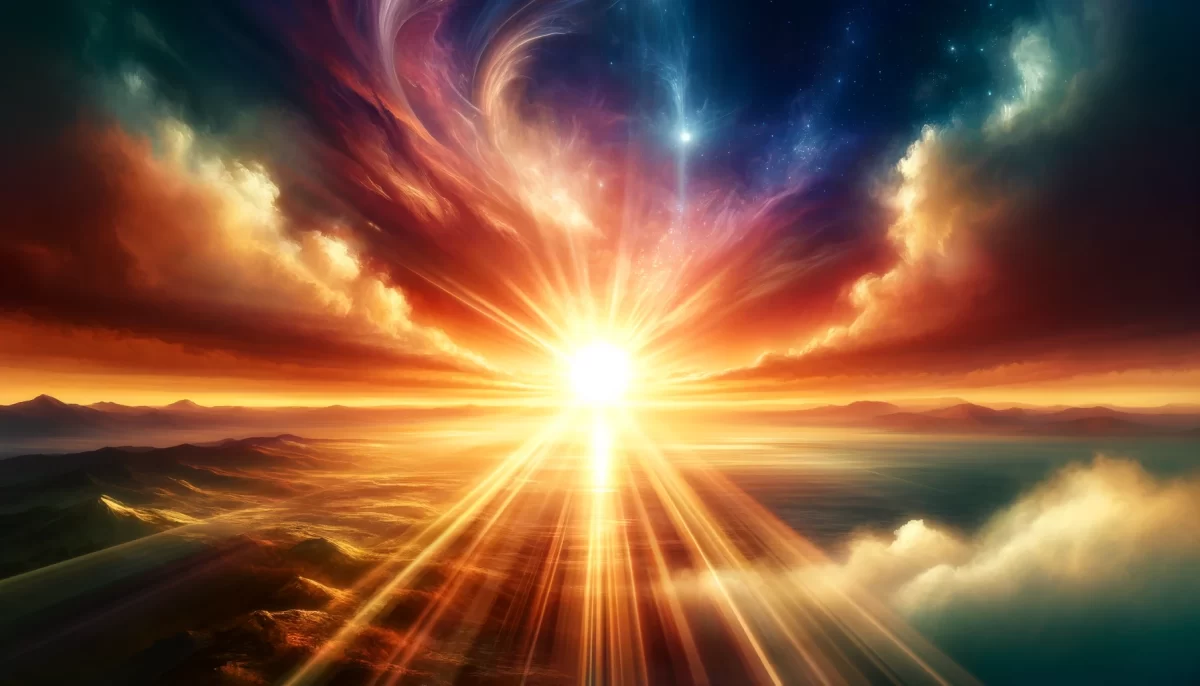
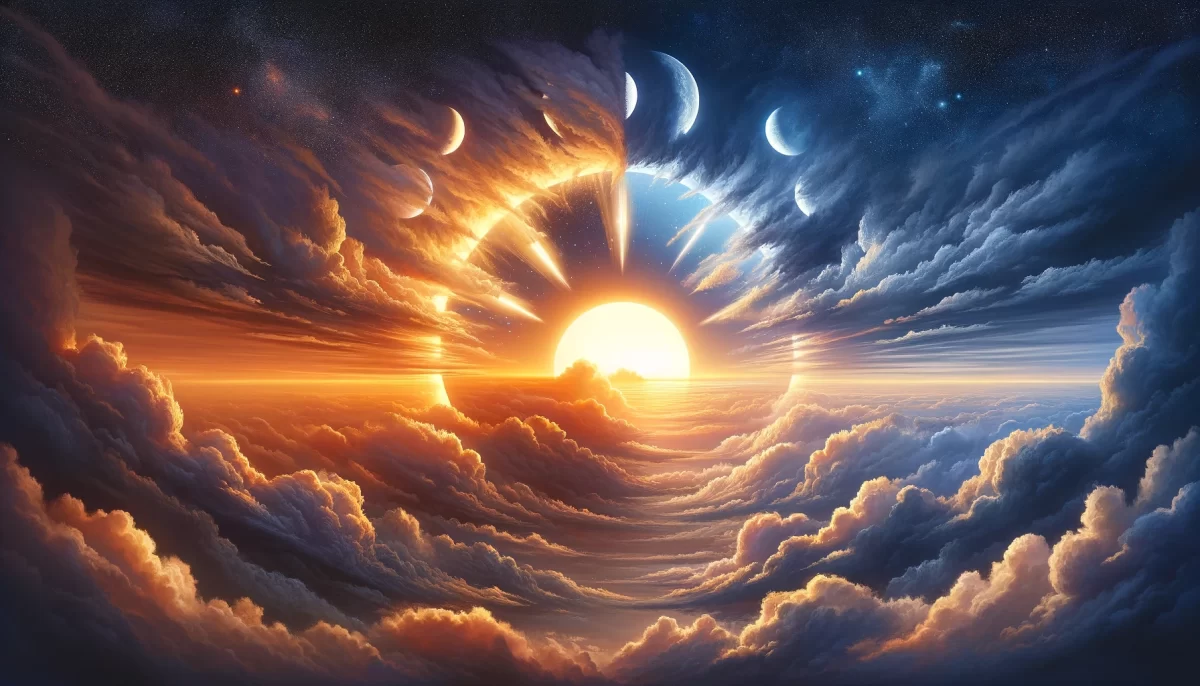
Leave a Reply